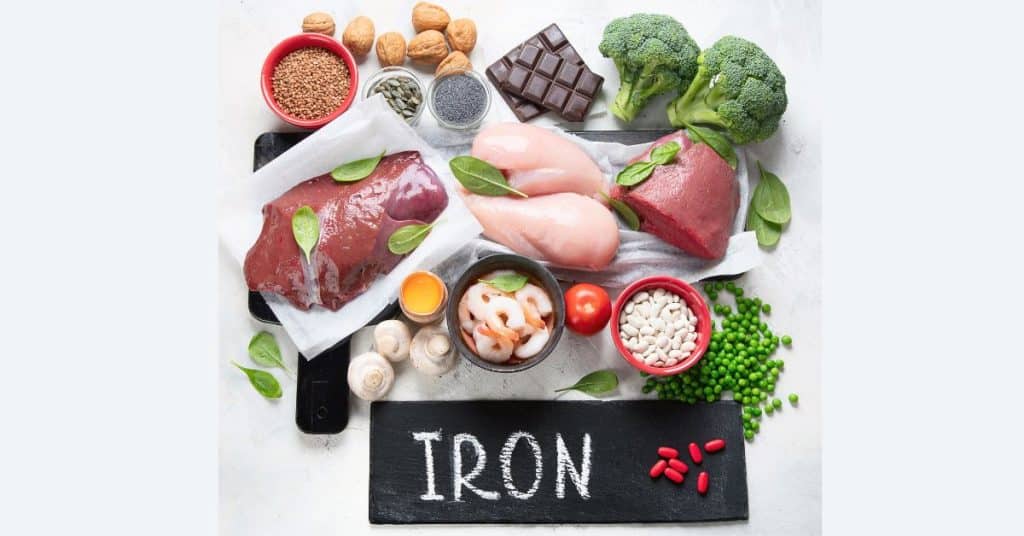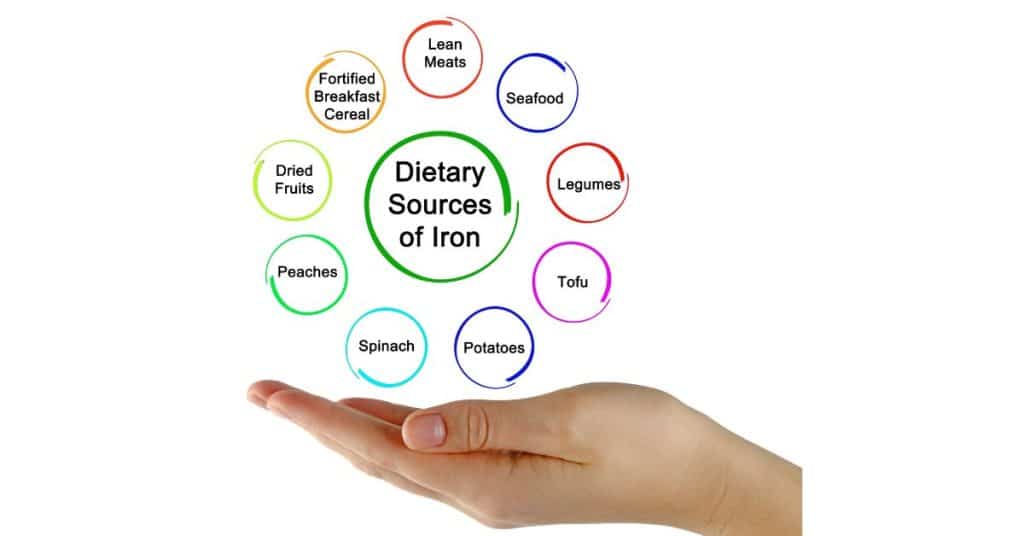Iron Mineral
Iron Mineral: The Essential Element for Your Health
Iron is an essential mineral that plays a crucial role in various bodily functions, including the production of hemoglobin, which carries oxygen in the blood. A deficiency in iron can lead to anemia, fatigue, and weakened immunity. It is vital to maintain adequate iron levels through diet or supplements, especially for individuals at higher risk.

Iron Deficiency Symptoms
An iron deficiency might sneak up on you, but there are several signs to look out for:
- Fatigue: Feeling unusually tired or weak can signal low iron levels. If you’re exhausted after a normal day or find simple tasks draining, it might be worth checking your iron.
- Pale Skin: A noticeable paleness in the skin, especially noticeable in the face and hands, can be linked to low iron levels, as iron is essential for healthy blood circulation.
- Shortness of Breath: If you notice becoming breathless more easily while doing everyday activities, your body might be struggling to get enough oxygen.
- Dizziness or lightheadedness: This can happen if there’s not enough oxygen reaching your brain. If you find yourself feeling dizzy often, it’s worth a consult with your doctor.
- Brittle Nails and Hair Loss: A deficiency can also affect your appearance; look out for nails that easily break or hair that seems to be thinning.Recognizing these symptoms early can help in seeking timely medical advice and treatment.
Recognizing these symptoms early can help in seeking timely medical advice and treatment.
Causes of Iron Deficiency
Iron deficiency can occur due to various reasons, including:
- Inadequate dietary intake: not consuming enough iron-rich foods.
- Increased needs: Certain life stages, such as pregnancy or growth spurts in children, require more iron.
- Blood loss: Heavy menstrual periods, gastrointestinal bleeding, or injuries can lead to significant iron loss.
- Malabsorption: Conditions like celiac disease or inflammatory bowel disease can hinder iron absorption.
Understanding the underlying cause is essential for effective treatment.
Risk Factors
Understanding the underlying causes of iron deficiency can help prevent it in the future. Some common causes include:
Absorption Issues: Conditions like celiac disease or inflammatory bowel disease can prevent your body from absorbing iron effectively.
Low Dietary Intake: Not eating enough iron-rich foods is a primary cause. Vegetarians, in particular, may struggle if they’re not mindful.
Blood Loss: Heavy menstrual periods or internal bleeding can lead to significant iron loss.
Increased Demand: Pregnant women and growing children often require more iron, increasing the risk of deficiency.

Sources
Getting enough iron through diet is important. Here are some excellent sources:
- Meat: Lean beef, chicken, and turkey are fantastic sources of heme iron, which is easily absorbed by the body.
- Seafood: Fish like tuna and salmon, as well as shellfish, pack a hearty iron punch.
- Legumes: Beans, lentils, and chickpeas are great plant-based iron sources.
- Leafy Greens: Spinach and kale contain non-heme iron, which is beneficial, especially for vegetarians.
- Fortified Foods: Some cereals and breads are fortified with iron, making them an easy choice for boosting intake.
Complications
If left untreated, iron deficiency can lead to serious complications, such as:
- Severe anemia, which can cause heart problems
- Complications during pregnancy, including low birth weight
- Developmental delays in children
Addressing iron deficiency promptly can help prevent these issues.
Prevention
Keeping iron levels in check is doable! Here are some simple tips:
- Balanced Diet: Incorporate a mix of iron-rich foods in each meal.
- Cook with Cast Iron: Using cast iron cookware can increase the iron content of your food.
- Avoid Calcium-Rich Foods When Eating Iron-Rich Foods: Calcium can hinder iron absorption, so try not to serve dairy with your meals high in iron.
- Regular Check-ups: Especially if you’re in a high-risk group, keep an eye on your iron levels through regular doctor visits.

Doctor Consultation
If you suspect you have an iron deficiency, it’s important to consult a healthcare professional. During your visit, the doctor may:
- Review your medical history and dietary habits
- Conduct a physical examination
- Order blood tests to check your hemoglobin and ferritin levels
Based on the results, your doctor can recommend appropriate treatment options, which may include dietary changes or iron supplements.
Case Studies
- Case Study 1: A 30-year-old woman with heavy menstrual cycles experienced fatigue and dizziness. After consulting her doctor, she was diagnosed with iron deficiency anemia. She started taking iron supplements and adjusted her diet to include more iron-rich foods. Within a few months, her energy levels significantly improved.
- Case Study 2: A vegetarian teenager was feeling unusually tired and had difficulty concentrating in school. A blood test revealed low iron levels. With guidance from a nutritionist, she learned to incorporate plant-based iron sources and vitamin C into her meals, leading to improved health and academic performance.
FAQs On Iron
Q: How much iron do I need daily?
A: The recommended daily intake varies by age and gender. Adult men typically need about 8 mg, while women need 18 mg until menopause, after which it drops to 8 mg.
Q: Can I get enough iron from a vegetarian diet?
Yes, but it requires careful planning. Focus on legumes, nuts, seeds, and fortified foods, and combine them with vitamin C sources to enhance absorption.
Q: Are there any side effects of iron supplements?
A: Some people may experience gastrointestinal issues, such as constipation or nausea. It’s best to take supplements under medical supervision.
Conclusion
Maintaining adequate iron levels is essential for overall health and well-being. By understanding the symptoms, causes, and prevention strategies related to iron deficiency, you can take proactive steps to ensure your body gets the iron it needs. If you suspect you have an iron deficiency, don’t hesitate to consult a healthcare professional for guidance and support. Your health is worth it!